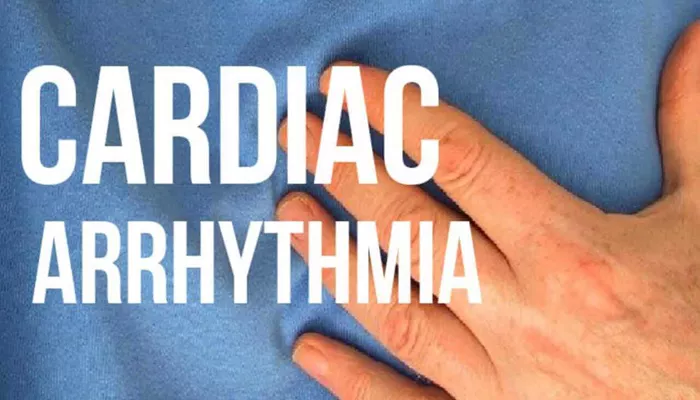Vitamin D is a fat-soluble vitamin that plays a crucial role in maintaining various physiological functions, including bone health and immune system regulation. Recent research has also highlighted its significance in cardiovascular health, particularly concerning cardiac arrhythmias. Cardiac arrhythmias, which are irregular heartbeats, can lead to serious complications such as stroke and heart failure. This article explores the relationship between vitamin D levels and the risk of developing arrhythmias, focusing on atrial fibrillation (AF), one of the most common types of arrhythmia.
The Role of Vitamin D in Cardiovascular Health
Vitamin D is primarily obtained through sunlight exposure, dietary sources, and supplements. Its active form, calcitriol, is involved in calcium homeostasis and affects various cellular processes. Studies have shown that vitamin D deficiency is prevalent worldwide, with over 20% of the global population affected. This deficiency has been linked to multiple cardiovascular conditions, including hypertension, coronary artery disease, and heart failure.
SEE ALSO: What Is Sinus Arrhythmia on An Ecg?
Mechanisms Linking Vitamin D to Arrhythmias
The mechanisms by which vitamin D influences cardiovascular health are complex and multifaceted. Key pathways include:
Regulation of the Renin-Angiotensin-Aldosterone System (RAAS):
Vitamin D acts as a negative regulator of RAAS, which plays a significant role in blood pressure regulation and cardiac function. Low vitamin D levels can lead to increased activity of RAAS, contributing to hypertension and arrhythmias.
Inflammation: Vitamin D has anti-inflammatory properties. Low levels of vitamin D may increase systemic inflammation, which is known to contribute to the development of AF. Elevated inflammatory markers like C-reactive protein (CRP) have been associated with an increased risk of AF.
Electrophysiological Effects: Vitamin D is thought to influence cardiac electrophysiology by modulating ion channel activity. For instance, it affects potassium channels involved in cardiac repolarization, which can impact the heart’s rhythm.
Vitamin D Deficiency And Atrial Fibrillation
Atrial fibrillation is characterized by rapid and irregular beating of the atria. It is associated with an increased risk of stroke and heart failure. Epidemiological studies have indicated a correlation between low vitamin D levels and an increased incidence of AF.
Epidemiological Evidence
Numerous studies have investigated the association between vitamin D levels and AF:
A meta-analysis found that serum vitamin D deficiency (<20 ng/ml) was associated with a 23% increased risk of AF in the general population.
Another study indicated that each 10 ng/ml increase in serum vitamin D was linked to a 5% decrease in AF incidence.
Research also suggests that vitamin D supplementation may reduce the frequency of AF episodes.
Pathophysiological Mechanisms
The relationship between vitamin D deficiency and AF can be explained through several pathophysiological mechanisms:
Electromechanical Delay: Studies have shown that patients with low vitamin D levels exhibit prolonged electromechanical delays in the atria, which may predispose them to AF.
Increased QT Interval: Vitamin D deficiency has been linked to prolonged QT intervals on electrocardiograms (ECGs), which can increase the risk of ventricular arrhythmias.
Calcium Homeostasis: Vitamin D plays a vital role in calcium metabolism. Deficiency can lead to disturbances in calcium homeostasis, affecting myocardial contractility and electrical activity.
Clinical Implications
Given the potential link between vitamin D deficiency and arrhythmias, clinical implications arise regarding screening and supplementation:
Screening for Vitamin D Deficiency
Healthcare providers should consider screening for vitamin D deficiency in patients at risk for cardiovascular diseases, especially those with existing conditions like hypertension or diabetes.
Vitamin D Supplementation
While some studies suggest that vitamin D supplementation may help prevent AF, results are mixed. More research is needed to establish optimal dosing strategies and long-term benefits for patients with existing arrhythmias.
Conclusion
The relationship between vitamin D levels and cardiac arrhythmias is an area of growing interest within cardiovascular research. While evidence suggests that low vitamin D levels may increase the risk of developing arrhythmias such as atrial fibrillation, further studies are necessary to clarify these associations and understand underlying mechanisms.
Vitamin D deficiency is prevalent globally and has been linked to various cardiovascular conditions. Epidemiological studies indicate a correlation between low vitamin D levels and increased risk of atrial fibrillation, suggesting potential pathophysiological mechanisms involving inflammation, RAAS regulation, and electrophysiological changes.
Clinical implications include the need for screening for vitamin D deficiency in at-risk populations and consideration of supplementation as a potential preventive measure against arrhythmias.
Related topics:


